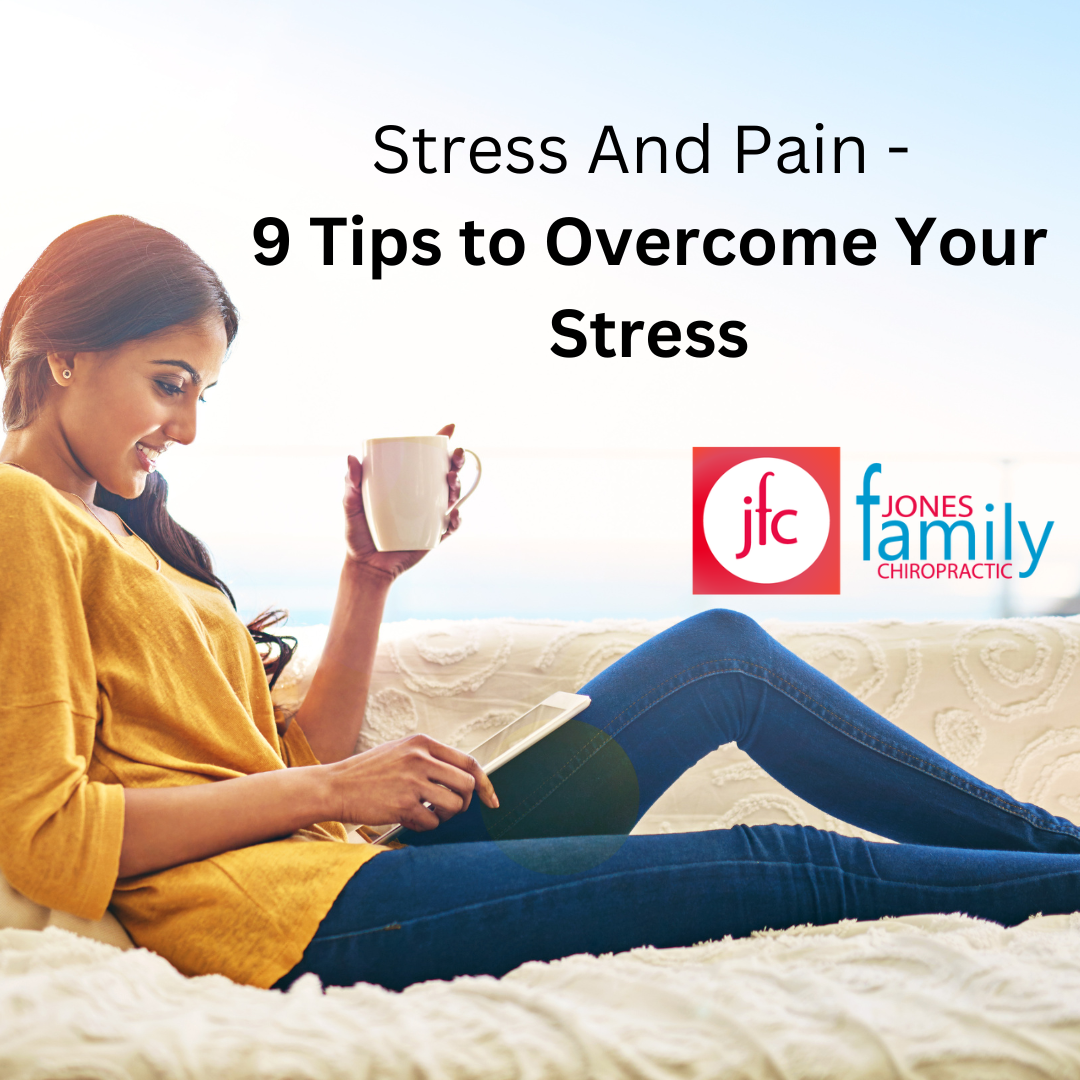When stress and pain strike, our first instinct might be to recoil. But if you’re experiencing a lot of stress or chronic pain on a regular basis, it’s important to learn how to manage it effectively in order to prevent it from negatively impacting your life. Stress is an inevitable part of life that can creep up at any time. Chronic pain, however, is a different beast altogether and requires a more aggressive approach to management than occasional stressors. If you’re living with chronic pain or have experienced recent stressors in your life—such as the end of a relationship or the loss of a loved one—it may seem like an uphill battle right now. However, there are lots of small things you can do every day to help manage your stress and reduce its impact on your overall well-being.
Exercise
There’s no question that exercise is one of the best ways to reduce stress. It can improve your mood, increase your energy levels, and decrease your overall level of stress. Plus and in some cases reverse your diabetes, maintaining an active lifestyle has been shown to improve sleep quality and prevent insomnia, both of which can be exacerbated by chronic stress. When it comes to managing stress, the type of exercise is less important than simply making sure you are getting it regularly. That said, certain activities are better than others when it comes to managing stress. For example, yoga is a great way to reduce stress and promote relaxation. If you’re struggling with chronic pain, a low-impact activity like walking is a great choice.
Talk to Someone
Whether you’re experiencing the death of a loved one, a relationship breakup, or some other significant stressor in your life, it’s important to get your feelings out in the open. Studies show that keeping your emotions bottled up can actually cause a spike in stress while talking them out has been shown to have the opposite effect. If you don’t have anyone to talk to, there are lots of online forums and support groups where you can meet people going through similar experiences. If you’re struggling with chronic pain, it’s important that you find a way to express the emotions associated with this experience. Keeping your feelings bottled up will only make them more intense and may lead to feelings of frustration or resentment.
Breathing Exercises
When we’re stressed out, our breathing often becomes shallow and irregular. This can exacerbate feelings of anxiety, making it more difficult to calm down. Certain breathing exercises have been shown to help reduce stress, improve mood, and even promote better sleep—all of which can be beneficial if you’re struggling with chronic pain. If your breathing tends to be irregular during stressful moments, there are lots of simple exercises you can do to get back on track. One of the best ones is what’s known as the 4-7-8 breathing technique. To perform this exercise, you simply inhale for 4 seconds, hold your breath for 7 seconds, and then exhale slowly through your mouth for 8 seconds. This exercise has been shown to help people relax and can be especially helpful if you’re experiencing insomnia.
Cognitive Behavioral Therapy (CBT)
While CBT is often used to help people overcome anxiety, it can also be effective in managing chronic pain. As opposed to traditional treatments like medications or surgery, CBT is focused on learning how to adjust your own behavior to make your condition more manageable. There are a number of different CBT techniques that can help reduce pain and increase your overall level of function. One of the most effective is called “fatigue management”. This approach has you track your levels of pain and energy throughout the day, allowing you to make adjustments to your schedule when necessary. Other CBT techniques have shown promise in reducing the frequency and intensity of migraines and headaches. CBT is a long-term approach to managing your pain, so you’ll need to be dedicated to its practice in order to see results. The good news is that there are lots of online resources that can help you get started.
Take Care of Your Body
One of the biggest ways you can help manage stress is to make sure you are getting enough sleep and eating properly. Sleep is often the first thing to go when we’re overwhelmed with stress. But getting enough sleep on a regular basis is essential for good health. This doesn’t just mean lying in bed for 8 hours and hoping for the best. Sleep hygiene is important—there are lots of small changes you can make in your sleep environment that will help you get the rest you need. For example, creating a schedule for when you go to bed and wake up (even on weekends) can make it easier to fall asleep. As for nutrition, eating a healthy diet can help increase your energy levels, which in turn will make it easier to manage stress. If you are struggling with chronic pain, it’s important to make sure you are getting enough protein in your diet, as this has been shown to help reduce pain and improve function.
Make a Vision Board
There’s no one-size-fits-all approach to dealing with stress, and some people find visual tools to be helpful when managing their emotions. Creating a “vision board” can be a fun way to express your feelings and visualize a calmer, more peaceful future. You can make your vision board in any way that feels right for you—you can put images on the board that represents your feelings, you can use words, or you can combine both. You can even put different items on your board that represents things that help you feel calm and relaxed. A vision board is a great way to process your emotions, take a step back from what you’re going through, and imagine a calmer future. Plus, it’s a nice thing to look at when you need a reminder that things can get better.
Limit the Noise
Noise pollution is one of the easiest stressors to overlook, but it’s very common in the modern world. If you’re struggling with chronic pain, it’s important to make sure you’re not adding to your stress levels by being around noisy environments. If you work in an open office, you may need to take a few steps to make your environment more peaceful. You could wear earplugs or noise-canceling headphones, try to work in a quieter area of the office or ask for assistance in creating a more private space. If you live in a noisy area, you may want to consider investing in a sound machine. There are lots of sound machine options out there, but all of them create a soothing sound that drowns out the noise around you.
Create a Ritual to Welcome the Day
Rituals are often associated with religious practices, but they don’t have to be. A ritual is simply a regularly occurring activity that serves to calm and center you. When you’re struggling with chronic pain, it’s important to find ways to stay grounded and focused on the present moment. Simple rituals like taking a few minutes to meditate, practice gratitude, or write in a journal have been shown to reduce stress and improve mood. Rituals are also a great way to help you get into a regular routine. If you find yourself feeling stressed out and overwhelmed, it’s likely because you’re not as focused on your priorities as you should be. Having a set schedule for the day can help, but it can also be helpful to add rituals to certain parts of your day.
Take Care of Your Environment
While it’s important to be aware of the impact noise and visual pollution can have on your stress levels, it’s also important to pay attention to the people and things around you. If you find yourself feeling stressed out, you may want to reassess the people in your life, and the amount of time you spend with them. It’s important not to cut people out of your life completely, but it can be helpful to recognize when a friendship is creating more stress than peace and reassess how you can move forward. Similarly, it’s important to pay attention to your physical environment. Is your home a calm and peaceful space? Do you have lots of visual stimuli, like unopened mail or a cluttered desk? These are all things you can work on to reduce your overall stress levels.
Conclusion
Stress is an inevitable part of life, but it can be managed. When it comes to reducing stress, the most important thing is
Guest Post: Laura Watson




